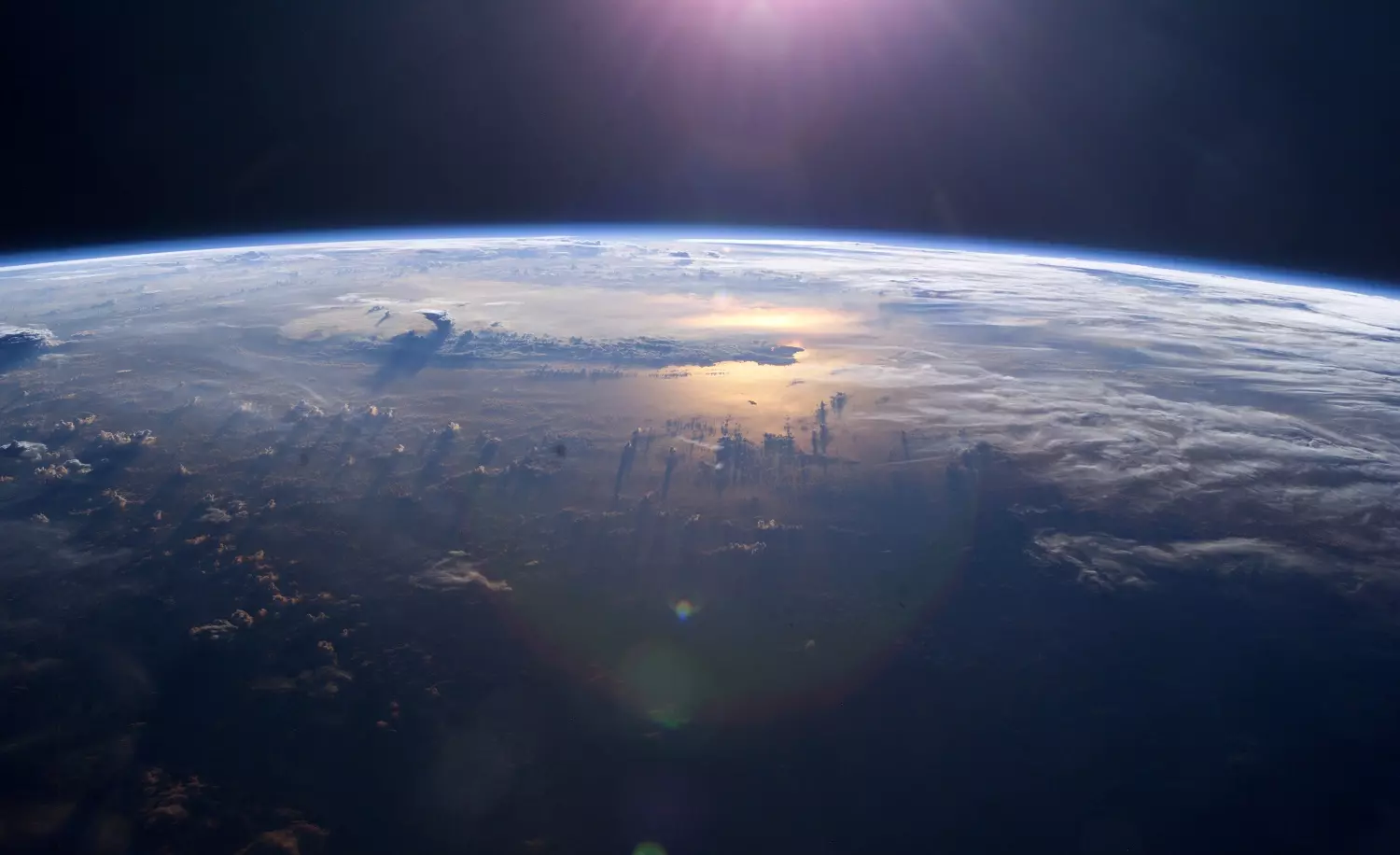[Originally published as the first part of A New Creation]
And I saw a new heaven and a new earth: for the first heaven and the first earth were passed away; and there was no more sea. (Revelation 21:1)
With the Great White Throne Judgment out of the way, sin has been purged from the earth. However, the creation was cursed with Adam’s sin, and even with the near Edenic conditions of the Millennial reign of Christ, the planet retains remnants of the curse. God told Adam, “… cursed is the ground for thy sake; in sorrow shalt thou eat of it all the days of thy life; thorns also and thistles shall it bring forth to thee; and thou shalt eat the herb of the field” (Genesis 3:17–18).
The purging of the curse will come by fire. The Apostle Peter writes, “But the day of the Lord will come as a thief in the night; in the which the heavens shall pass away with a great noise, and the elements shall melt with fervent heat, the earth also and the works that are therein shall be burned up” (2 Peter 3:10). Earth, i.e., the planet, will not cease to exist, for God promised that it would exist forever. The psalmist states, “[God] Who laid the foundations of the earth, that it should not be removed for ever” (Psalm 104:5).
God, speaking through the prophet Isaiah, says, “For, behold, I create new heavens and a new earth: and the former shall not be remembered, nor come into mind” (Isaiah 65:17). The Hebrew word translated as “create” is bârâ’, and it is only used when referring to God’s creative power. “In the beginning God created the heaven and the earth” (Genesis 1:1). He created ex nihilo, out of nothing, with only His spoken word.
John witnesses fulfilled prophecy when he reports, “And I saw a new heaven and a new earth: for the first heaven and the first earth were passed away; and there was no more sea” (Revelation 21:1).
However, this time God does not need to create out of nothing. All the raw materials already exist, they only need to be purified by fire and reconstituted. Indeed, John does not see the creation of a new heaven and new earth, but rather a heaven and earth that have been made new, i.e., renovated. What is conspicuous in this New Heaven and New Earth is the absence of a sea. Often in Revelation, the “sea” is used in reference to the masses of people, and sometimes they are those that are “the lost.”
Since the lost were sentenced to an eternity in the “lake of fire,” it is possible that “no more sea” refers to these. We see that reaffirmed a few verses down. “But the fearful, and unbelieving, and the abominable, and murderers, and whoremongers, and sorcerers, and idolaters, and all liars, shall have their part in the lake which burneth with fire and brimstone: which is the second death” (Revelation 21:8). However, “the sea” more often refers literally to earth’s large bodies of water. Here too, the word can be taken literally.
This raises the question, how can the earth function without water? I believe Dr. Henry M. Morris, Jr. provided the best explanation.
There will, in fact, be no need for a sea on the new earth. The present sea is needed, as was the original antediluvian sea, as a basic reservoir for the maintenance of the hydrologic cycle and the water-based ecology and physiology of animal and human inhabitants of the earth. In the new earth, however, there will be no animals at all, and presumably all the men and women who live there will have glorified bodies with no more need of water. Their resurrected bodies will be composed, like that of the Lord Jesus, of flesh and bone (Luke 24.39; Philippians 3:21) but apparently with no need of blood (1 Corinthians 15:50) to serve as a cleanser and restorer of the body’s flesh as at present. This, in turn, eliminates the major need for water on the earth (blood is about 90 percent water, and present-day human flesh is about 65 percent water).[4]
For those who might lament the absence of oceans and all the aquatic activities that go along with that, the New Heaven and New Earth will more than make up for the lack of seas. As we consider the features of the New Heaven and New Earth, we need to keep in mind that John was literally at a loss for words to describe what he witnessed. The place is too wonderful to be expressed in human language, so John could only use the words available to him in his time.
The Apostle Paul experienced what he called the “third heaven.” The experience so overwhelmed him that he could not tell whether the experience was actual or a vision. Speaking of himself in the third person, he said, “And I knew such a man, (whether in the body, or out of the body, I cannot tell: God knoweth;) How that he was caught up into paradise, and heard unspeakable words, which it is not lawful for a man to utter” (2 Corinthians 12:3–4).
“And I John saw the holy city, new Jerusalem, coming down from God out of heaven, prepared as a bride adorned for her husband” (Revelation 21:2). Before going to the cross, Jesus promised, “In my Father’s house are many mansions: if it were not so, I would have told you. I go to prepare a place for you. And if I go and prepare a place for you, I will come again, and receive you unto myself; that where I am, there ye may be also” (John 14:2–3). This is the place of which Jesus spoke. It comes down from heaven to the newly re-created earth, and it is unimaginably beautiful like “a bride adorned for her husband.”
“And I heard a great voice out of heaven saying, Behold, the tabernacle of God is with men, and he will dwell with them, and they shall be his people, and God himself shall be with them, and be their God” (Revelation 21:3). A “tabernacle” is literally a tent designed for portability. However, the deeper meaning is that of a “habitation” or a “dwelling place.”
I have always maintained that “Zion” is a name referring to the dwelling place of God. In the Old Testament, Jerusalem is often referred to as Zion, as is the mountain upon which the Temple stood. Hence, when people speak of Zion, they are thinking of either Jerusalem or the Temple. However, the name comes from the fact that God chose that place as His earthly dwelling. “So shall ye know that I am the LORD your God dwelling in Zion, my holy mountain: then shall Jerusalem be holy, and there shall no strangers pass through her any more” (Joel 3:17). Now, “the New Jerusalem,” the new Zion, descends from heaven where God will dwell among His children.
“And God shall wipe away all tears from their eyes; and there shall be no more death, neither sorrow, nor crying, neither shall there be any more pain: for the former things are passed away” (Revelation 21:4). All the things that cause pain, sorrow, and tears no longer exist. How many of us can recall even one day without experiencing any of these things? I dare say that even if such days come on occasion, they are rare indeed. In the New Jerusalem, such days will be the norm, and all things that cause tears, sorrow, and pain will not even come to mind.
“And he that sat upon the throne said, Behold, I make all things new. And he said unto me, Write: for these words are true and faithful. And he said unto me, It is done. I am Alpha and Omega, the beginning and the end. I will give unto him that is athirst of the fountain of the water of life freely. He that overcometh shall inherit all things; and I will be his God, and he shall be my son. But the fearful, and unbelieving, and the abominable, and murderers, and whoremongers, and sorcerers, and idolaters, and all liars, shall have their part in the lake which burneth with fire and brimstone: which is the second death” (Revelation 21:5–8).
“He that sat upon the throne” is Jesus. He then says, “Behold, I make all things new.” Jesus is the Creator,[6] and He is the One that promised to prepare a place for us. Then, the speaker identifies Himself as, “the Alpha and Omega, the beginning and the end,” the same title with which Jesus first introduced Himself to John in the Book of Revelation.
Jesus is the Word of God; therefore, the words He speaks “are true and faithful.” God’s Word never fails. To those who “thirst” for life, i.e., eternal life, He will give “of the fountain of the water of life freely.” This could be an actual fountain of water, but it is more likely symbolic of eternal life continually springing forth without end. Jesus made the same claim to the Samaritan woman at the well. “But whosoever drinketh of the water that I shall give him shall never thirst; but the water that I shall give him shall be in him a well of water springing up into everlasting life” (John 4:14). Those that enter the New Jerusalem are the “overcomers.” They will inherit “all things,” and He will be their God, and they will be His children. The Apostle Paul explains it in legal terms. “And if children, then heirs; heirs of God, and joint-heirs with Christ; if so be that we suffer with him, that we may be also glorified together” (Romans 8:17). “All things” belong to Him, and as His children, we jointly inherit “all things” with Him. “But the fearful, and unbelieving, and the abominable, and murderers, and whoremongers, and sorcerers, and idolaters, and all liars, shall have their part in the lake which burneth with fire and brimstone: which is the second death” (Revelation 21:8). No extra commentary is needed here.







